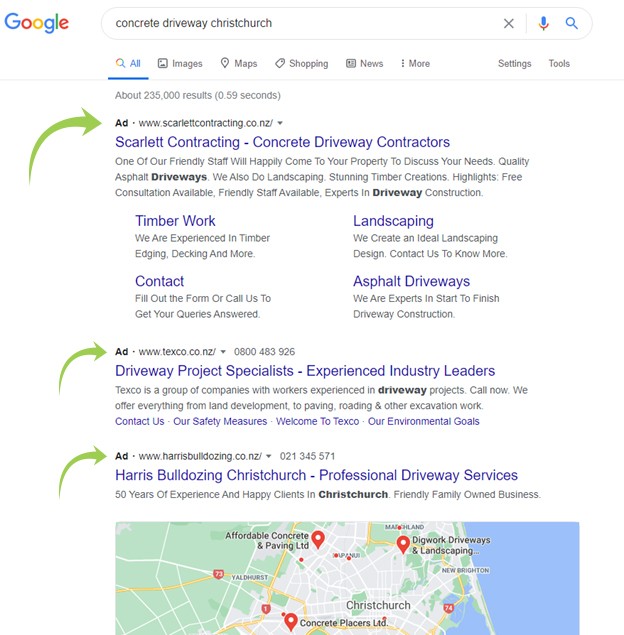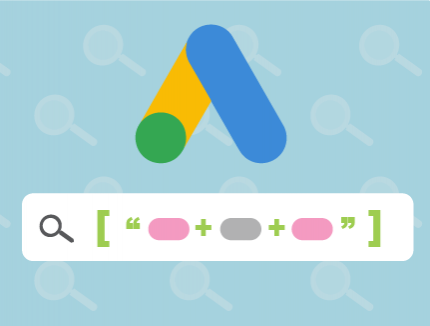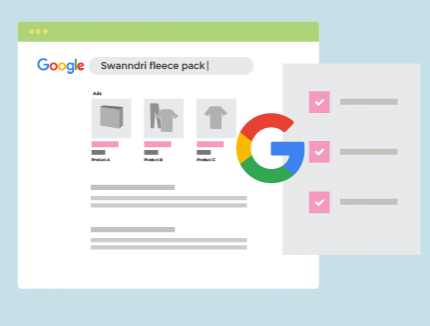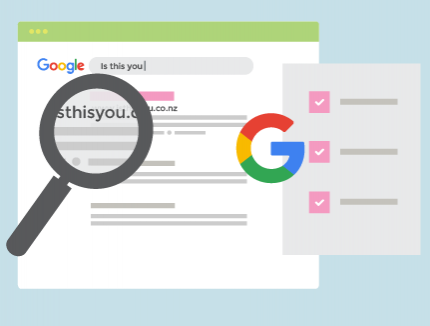BLOG
How do I get my business to show up on Google? Part 1: Google Search Ads
Being visible in search results for the keywords your target audience is searching for is essential to driving traffic and conversions through your business’s website — aka your digital salesperson. This shouldn’t be news to you, but we’ll forgive you if penetrating Google Search results is still a mystery to you. Afterall, Google is a mystery to many!
This blog is the first instalment of our educational series designed to help demystify search engine results pages (SERPs); the different elements found therein and what’s required to get your business appearing in each of them. Part 1 concentrates on the Google Search Ads, which we’ll refer to as Google Ads from here on in.
Google Ads are pay-to-play and enjoy pride of place atop SERPs
Right at the very top of most (but not all) SERPs are Google Ads (formerly known as AdWords). These are the three or four results with ‘Ad’ in bold text beside them (there are also Google Shopping Ads which appear above all else with an image of a product, but we’ll cover these later in the series). These are a pay-per-click (PPC) form of online marketing referred to as the Paid Search channel.
Google give these results prime screen real estate because they are the winners of an algorithm-driven auction that takes place in a fraction of a second after the user enters their search query.
When are Google Ads shown in search results?
A business’s Google Ads are shown in search results when a user performs a search that includes one of the business’s targeted keywords. When building their campaign, a business chooses the keywords they’d like their ads to receive impressions for and refines them over time as their campaign evolves.
The building and management of campaigns is carried out using either the Google Ads web interface or the Google Ads Editor tool, which is a desktop application.

Google Ads represent the Paid Search traffic channel and usually appear right at the top of SERPs.
The keyword targeted by the businesses running the Google Ads featured in the search pictured above is ‘concrete driveway christchurch’. If an advertiser’s Google Ad is shown (receives an Impression) like those above but it doesn’t receive a click, the advertiser doesn’t pay anything, hence the pay-per-click and Paid Search monikers.
But don’t be fooled — it’s not as simple as highest bidder wins. Google reward the businesses with a combination of a strong bid and a well-optimised campaign. So, while your click budget needs to be competitive with your industry standard to generate ad impressions, smaller companies can still compete for clicks with large firms if their campaigns are well-managed.
Google Ads are not a set and forget channel
Some businesses fall into the trap of either being too hands off or too hands on with their Google Ads campaign(s). They may build the campaign then leave it to “run itself”, failing to continue optimising their campaign over time to ensure it is attracting clicks from users with search intent that’s aligned with their product or service offering. This can easily lead to wasted spend on clicks from users who are highly unlikely to convert once they land on your website.
Alternatively, they make too many changes, too often, loosing track of what’s working and what isn’t. Their targeting becomes too wide or too narrow, their budget and individual bids too high or too low; potentially wreaking havoc and driving cost-per-click up and conversion down.
Like a not-so handy homeowner… When all hope is lost, call the professionals!
We often get SMBs coming to us in desperation after the horse has bolted and their Google Ads campaign is out of control. They throw their hands up in the air and ask for professional help. We’re fine with this scenario as they’re usually only trying to save money and it’s better that they contact us late than never. We’d much rather this series of events than the business failing to the see the value for money and abandoning the Google ads platform altogether.
It’s important to remember that Google Ads is Google’s cash cow (making them USD$104bn in 2020). Because of this, they make setting up and running a campaign seem all too easy, and there-in lies the problem. Businesses get in over their head very easily.
Our Google Ads improvement process starts with an audit of the business’s Google Ads campaigns to identify where they’ve gone wrong, and how to fix it. While they’ve acted with the best intentions, our findings never cease to amaze us. A good example is when we saw a single click cost of nearly $50 for a keyword that was poorly optimised and capturing users searching for a completely different industry.
The resulting website session obviously didn’t convert, and the client lost $50 in the blink of an eye when the expected cost-per-click for their campaign was under $5. Sad, but true.
How much money should I spend on Google Ads?
Google Ads click costs vary from one industry to the next, which is one of the reasons enlisting a professional to build your campaign is recommended. They will either have experience running campaigns in your specific industry or will complete research to ascertain a suitable starting daily click budget and make tweaks from there.
The beauty of Google Ads is that you can set a daily click budget which is averaged out across a month, and you’ll never pay more than that amount in any given month. This means you know what’s coming at the end of the month and you can calculate your Google Ads outlay into your annual marketing budget before your campaign launches.
Skilled digital marketers will monitor how your Google Ads budget is being consumed throughout the first few weeks the campaign is live, and if necessary; increase the maximum amount your campaign can bid for each search, make suggestions around adjusting your budget, or both.
How much management do Google Ads need?
As mentioned above, your Google Ads campaign shouldn’t be left alone for long periods of time. In addition to the Google Ads experience and knowledge digital marketing agencies can offer you, they harness another valuable asset that you are probably lacking in — time (and knowing where best to spend it)!
A key value in utilising an agency to take care of your Paid Search efforts is that you can trust the good ones to actively manage your campaigns, freeing you up to concentrate on your task at hand: running your business day-to-day! Agencies should have their finger on your campaign pulse daily, above all else ensuring it’s still running, core metrics are where they should be, and that your website pages the ads are linking to are actually working!
At Limelight, the time we spend working on a given client’s Google Ads account each month ranges from 45 minutes for more basic campaigns, right through to 15 hours for the most demanding campaigns.Our Google Ads Management includes but is not limited to:
|
Google Ads are a must for many sectors
Google Ads are great for most sectors, especially those heavily searched for on mobile devices (think house buyers house-hunting on their phone during their lunchbreak), as these ads dominate smaller screens.
This means that if you’re result isn’t present in the Paid Search section at the top of the page, you’ll likely be buried four or five swipes beneath the fold (the screen visible on the initial page load) and won’t stand a chance against your competitors who are running Google Ads.
How a Google Ads campaign can improve your website
An actively and effectively managed Google Ads campaign is an excellent source of search data that you can apply to your other online marketing channels. As your ads receive clicks, your account collects the search terms Google users are actually typing into the search bar.
You can use this data to optimise not only your Google Ads, but also your website’s SEO to help drive your Organic Search (non-paid) visibility. Stay tuned for more on this in the Organic Search instalment of this series to learn how.
Is your website ready for Google Ads? Making sure you don’t have an ugly baby.
We’re approached occasionally by businesses with websites that we don’t feel confident driving traffic to via digital marketing, because we don’t think users will convert once there. We’re all about providing value for our clients, driving performance, and affecting their bottom line, so we won’t suggest throwing good money after bad enlisting digital marketing campaigns for a website that is so underwhelming users won’t waste their time with it.
In this case we’d suggest either a website redesign, or if funds are tight, in some cases building a dedicated landing page to direct Google Ads traffic to can be highly effective for the right campaign and service. Read more about landing pages.
If you’re unsure about the quality of your website and DM efforts, read our article about having the ugly baby conversation, and consider an enlightening digital marketing and website audit to receive the cold, hard truth coupled with bright, actionable suggestions to turn things around.
Is Paid Search the right channel for your business?
We hope you’ve found Part 1 of our How do I get my business to show up on Google? series engaging and educational. Paid Search can be a profitable channel when treated correctly, so please contact us to learn more about our Google Ads services.
And come back for future series instalments which will cover Google Shopping Ads, Organic Search, Local Pack, and Google My Business Listings.









